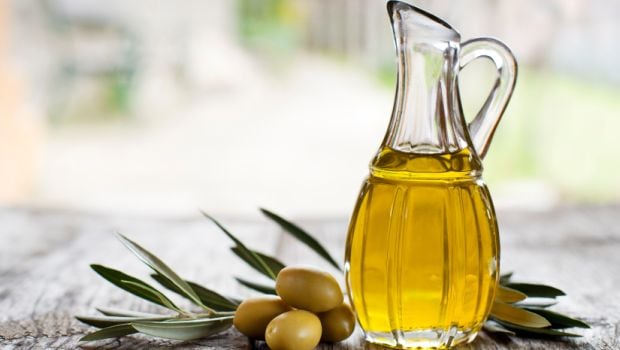Eczema is a dry skin condition which comes in different forms and varies from person to person. It is not contagious so it is safe to be around those suffering from this skin condition. In mild cases of eczema, skin is dry, red and itchy. Scratching can lead the skin to split, bleed and open to infection. Though it can occur at any age, it is primarily seen in children. Those who get eczema during their childhood are more likely to get it again later in life.Types of Eczema

1. Apply Vegetable Shortening
The thick greasy kitchen staple will be the most effective way to cure the dry, cracked skin. Gently coat the affected area, cover it with a plastic wrap and secure it with a surgical tape. Leave it for two to three hours.2. Incorporate Turmeric in Your DietThis spice helps in reducing inflammation in many skin conditions. Curcumin found in turmeric acts as an antioxidant protects the skin and reduces the wound healing time. Aim to consume at least one tea spoon of turmeric every day.Also read: (8 Health Benefits of Turmeric: Getting Back to the Roots)

Turmeric helps reducing inflammation in many skin conditions
3. Apply Olive OilOlive oil is a natural oil which contains omega-3 fatty acids. Omega-3 is known to have anti-inflammatory properties. Rub some warm olive oil into affected areas of the skin to soften the patches. If psoriasis is affecting your scalp, use some olive oil for your scalp while showering to remove the dried skin. Adding olive oil to your diet can also help heal your skin from the inside out.(Also Read: Could Frying Vegetables in Olive Oil Bring Health Benefits?)
4. Apply Tea Tree OilTea tree oil can be used to treat a variety of skin conditions due to its anti-inflammatory, antiseptic and nourishing properties.Tea tree oil used in the combination of olive oil can help in curbing the itching and soften dried skin.(8 Amazing Benefits of Tea Tree Oil for Your Skin and Hair)

Tea tree oil can be used to treat a variety of skin conditions5. Apply Aloe VeraPure Aloe Vera gel helps in providing a nice cooling effect to itchy skin. If you are suffering from eczema or psoriasis, consider growing your own aloe plant so that you can take the gel straight from its natural source avoiding the chemicals.(Also Read: 6 Amazing Benefits of Aloe Vera for Hair, Skin and Weight-Loss)

Pure Aloe Vera gel helps in providing a nice cooling effect to itchy skin6. Consume FlaxseedsFlaxseeds are rich in omega-3 fatty acids, and they help block a chemical in your body called arachidonic acid responsible for inflammation. Consume a few tablespoons of flaxseed and add to smoothies, oatmeal, granola, or salads. You can also use flaxseed oil as a dressing for salads and veggies.(Also Read: How to Eat Flax Seeds? Health Benefits, Tips and Recipes)
Flaxseeds are rich in omega-3 fatty acids, which is good for skin
7. Eat Fish Oil The omega-3 fatty acids in fish oil helps in improving eczema when taken in high doses between 3-10gms a day. Olive oil, flaxseed, nuts, and fatty fish such as salmon, sardines, herring, mackerel, and tuna are all good natural sources of omega-3 fatty acids.(Also Read: 7 Amazing Fish Oil Benefits: From Heart Health to Gorgeous Hair)
Disclaimer:
- Atopic Dermatitis: This type of Eczema is chronic and inflammatory. You may be genetically inclined to develop Atopic Dermatitis or AD if your family has a history of this type of eczema. Meaning, this could be hereditary but it is not necessary that it will be passed from parent to child in all cases. AD usually develops in children under the ages of 5 and a combination of genetic and environmental factors might play a role in who gets infected.
- Contact: As the name suggests, Contact Eczema occurs as a result of contact with allergens or irritants in our environment. This causes the skin to become red and itchy. In most cases, Contact Eczema happens on arms and legs, or parts of the body which come into contact with these allergens.
- Varicose: This type of eczema is common in later life, particularly in women, but can occur from the teenage years onwards. If you have poor circulation, blood clot in your legs, varicose veins, have had phlebitis or cellulitis in the past or are overweight you are prone to developing varicose eczema.
- Pompholyx: Pompholyx eczema is usually restricted to the hands and feet. It involves the development of intensely itchy watery blisters which mostly affects the sides of the fingers, the palms of the hands and the soles of feet. This condition can occur at any age but is most common before the age of 40 years.
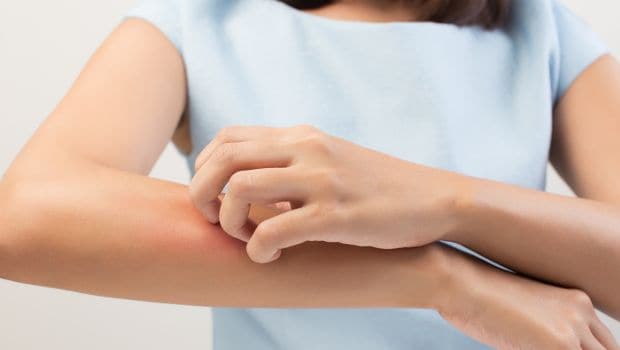
Here Are Some Home Remedies To Cure Eczema
1. Apply Vegetable Shortening
The thick greasy kitchen staple will be the most effective way to cure the dry, cracked skin. Gently coat the affected area, cover it with a plastic wrap and secure it with a surgical tape. Leave it for two to three hours.2. Incorporate Turmeric in Your DietThis spice helps in reducing inflammation in many skin conditions. Curcumin found in turmeric acts as an antioxidant protects the skin and reduces the wound healing time. Aim to consume at least one tea spoon of turmeric every day.Also read: (8 Health Benefits of Turmeric: Getting Back to the Roots)
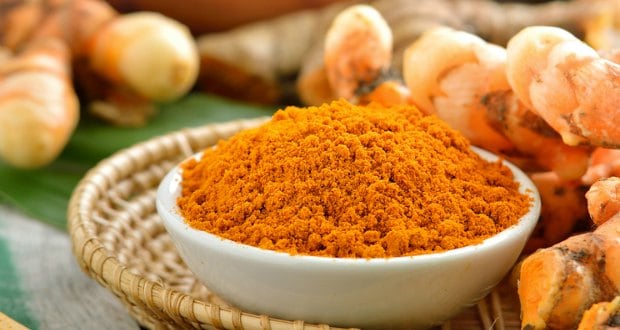
Turmeric helps reducing inflammation in many skin conditions
3. Apply Olive OilOlive oil is a natural oil which contains omega-3 fatty acids. Omega-3 is known to have anti-inflammatory properties. Rub some warm olive oil into affected areas of the skin to soften the patches. If psoriasis is affecting your scalp, use some olive oil for your scalp while showering to remove the dried skin. Adding olive oil to your diet can also help heal your skin from the inside out.(Also Read: Could Frying Vegetables in Olive Oil Bring Health Benefits?)
4. Apply Tea Tree OilTea tree oil can be used to treat a variety of skin conditions due to its anti-inflammatory, antiseptic and nourishing properties.Tea tree oil used in the combination of olive oil can help in curbing the itching and soften dried skin.(8 Amazing Benefits of Tea Tree Oil for Your Skin and Hair)
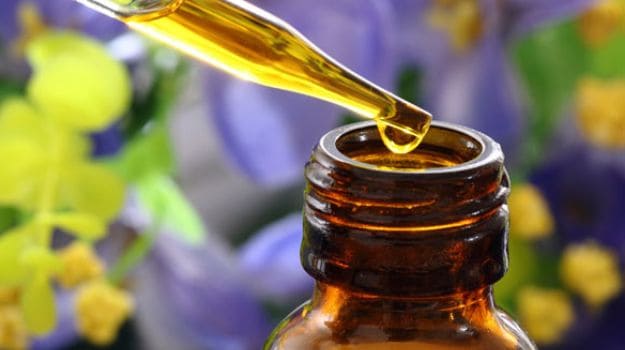
Tea tree oil can be used to treat a variety of skin conditions5. Apply Aloe VeraPure Aloe Vera gel helps in providing a nice cooling effect to itchy skin. If you are suffering from eczema or psoriasis, consider growing your own aloe plant so that you can take the gel straight from its natural source avoiding the chemicals.(Also Read: 6 Amazing Benefits of Aloe Vera for Hair, Skin and Weight-Loss)
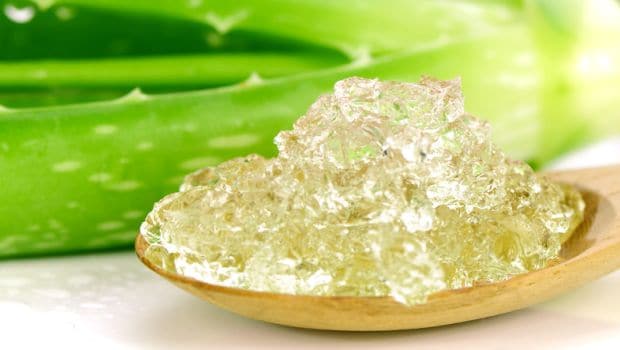
Pure Aloe Vera gel helps in providing a nice cooling effect to itchy skin6. Consume FlaxseedsFlaxseeds are rich in omega-3 fatty acids, and they help block a chemical in your body called arachidonic acid responsible for inflammation. Consume a few tablespoons of flaxseed and add to smoothies, oatmeal, granola, or salads. You can also use flaxseed oil as a dressing for salads and veggies.(Also Read: How to Eat Flax Seeds? Health Benefits, Tips and Recipes)
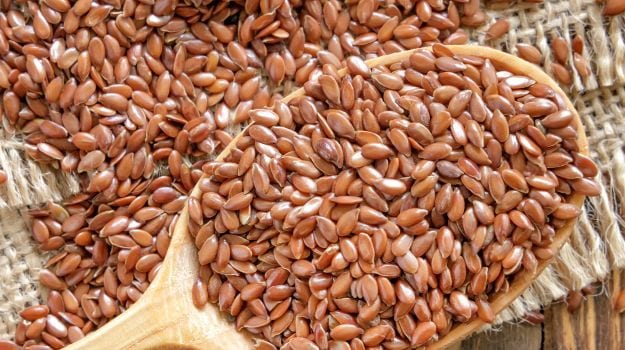
Flaxseeds are rich in omega-3 fatty acids, which is good for skin
7. Eat Fish Oil The omega-3 fatty acids in fish oil helps in improving eczema when taken in high doses between 3-10gms a day. Olive oil, flaxseed, nuts, and fatty fish such as salmon, sardines, herring, mackerel, and tuna are all good natural sources of omega-3 fatty acids.(Also Read: 7 Amazing Fish Oil Benefits: From Heart Health to Gorgeous Hair)
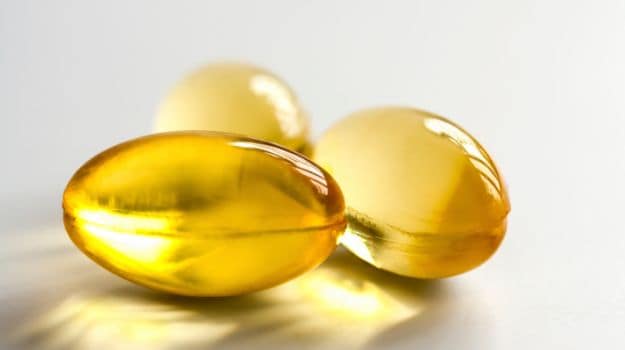
Disclaimer:
The opinions expressed within this article are the personal opinions of the author. NDTV is not responsible for the accuracy, completeness, suitability, or validity of any information on this article. All information is provided on an as-is basis. The information, facts or opinions appearing in the article do not reflect the views of NDTV and NDTV does not assume any responsibility or liability for the same.
Advertisement








